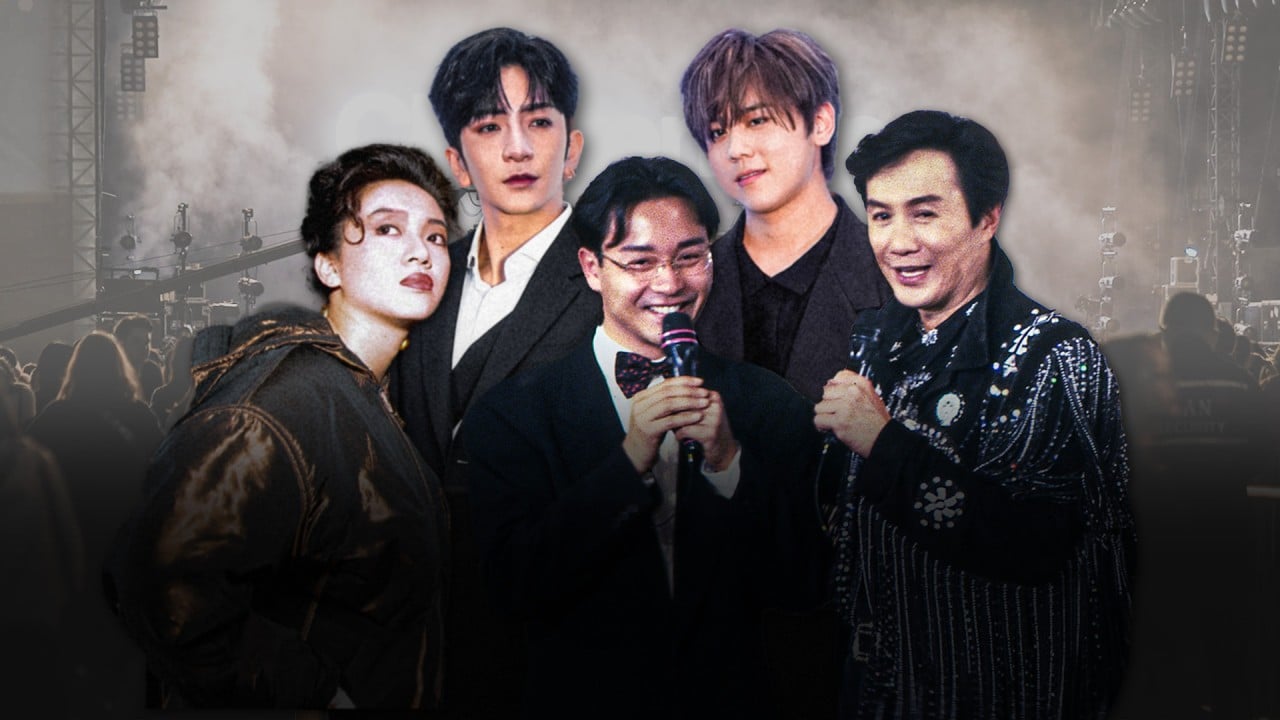
Profile | How Hong Kong boy band Grasshopper, protégés of Cantopop legend Anita Mui, blazed a trail with their intoxicating dance pop music
- Mirror are far from the only home-grown boy band to make it big in Hong Kong – before them there was Grasshopper
- The trio formed in 1985, were a supporting act for Anita Mui Yim-fong and are still going strong – they are currently on yet another world tour
Mirror may be the most popular home-grown music act in Hong Kong now, but the city is no stranger to falling in love with boy bands. Before Keung To and his fellow group members, there was Grasshopper.
The trio comprises brothers Calvin Choy Yat-chi and Remus Choy Yat-kit, and their friend Edmond So Chi-wai. They all grew up in the working-class neighbourhood of Kwun Tong, in Kowloon, in the 1970s and ’80s.
“There used to be a lot of record stores on the levels beneath the cinema. That was where I bought my first Sam Hui Koon-kit vinyl. I had to save a lot of money from my summer job for that,” Calvin Choy said in 2021 at an event in the same area. (Hui is a Hong Kong singer.)
“The shopping area was only two bus stops away from the estate we lived in, but we would walk to save money,” So added.
Remus Choy, who loved to dance and who was inspired by J-pop bands like The Checkers, asked his brother and So to enter the New Talent Singing Awards, which was an annual singing competition held in Hong Kong. It was there, during the first round of auditions, that the trio met Mui.
“As we were about to start our routine, the lights went out,” Remus Choy recalled on a radio show in 2022.
“At this point, ‘Bad Girl’ was already a huge hit and Mui was a big star. While we waited for the lights to turn on, she started chit-chatting with us and asked where we learned to dance, and we told her we were self-taught.
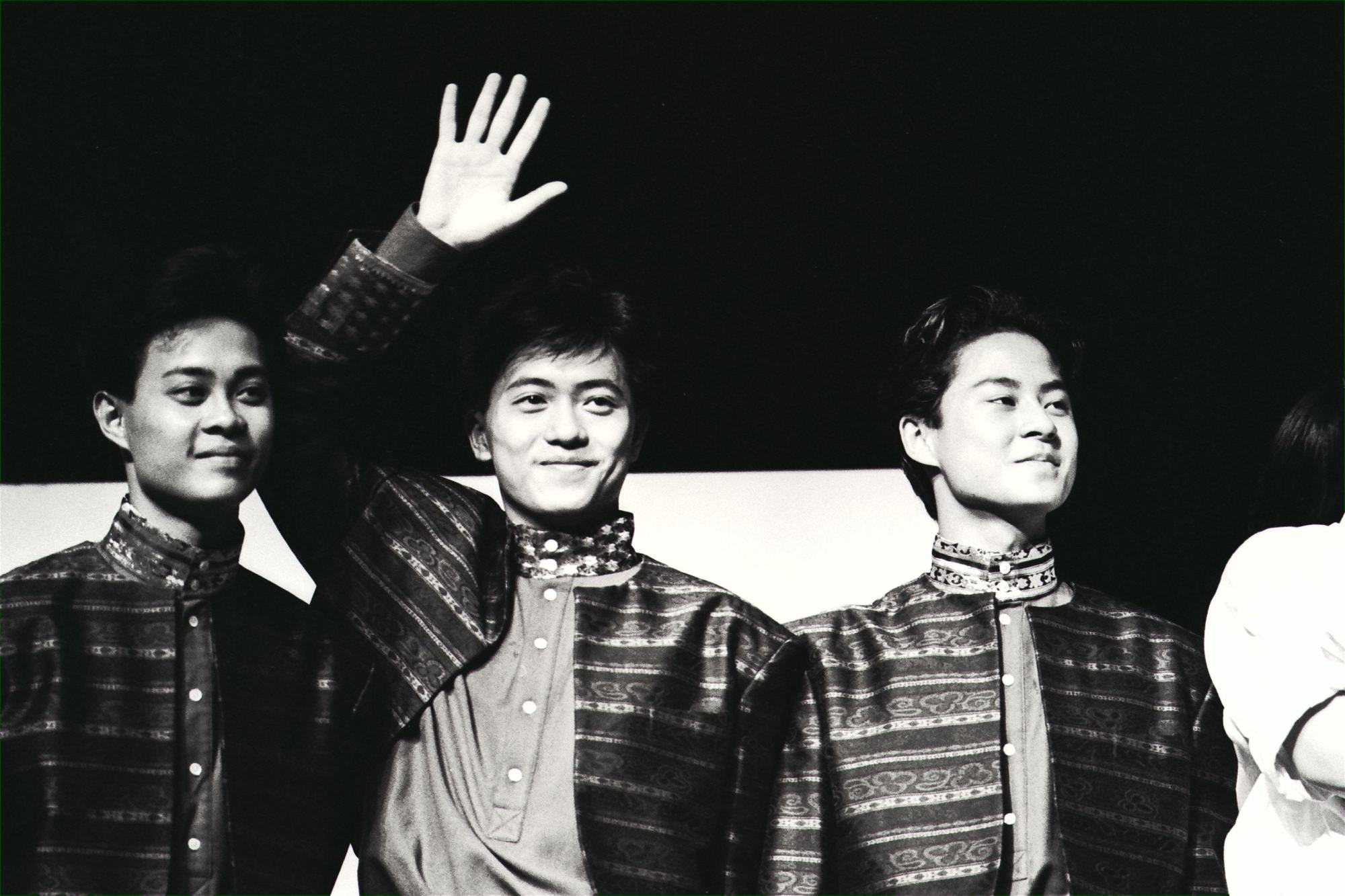
“She said she never heard of the song we were performing, and we mentioned it was a Japanese song and [that] we wrote the Cantonese lyrics ourselves.”
This must have impressed Mui, dubbed the “Madonna of the East”, because – even though Grasshopper were eliminated from the talent show – they were invited by Mui and her management a few months later to be a support act for the singer’s concert at the Hong Kong Coliseum.
“We practised to the point of over-practise. We couldn’t let Anita Mui down,” said Calvin Choy. Mui subsequently took the trio under her wing, making them her supporting act for all her performances.
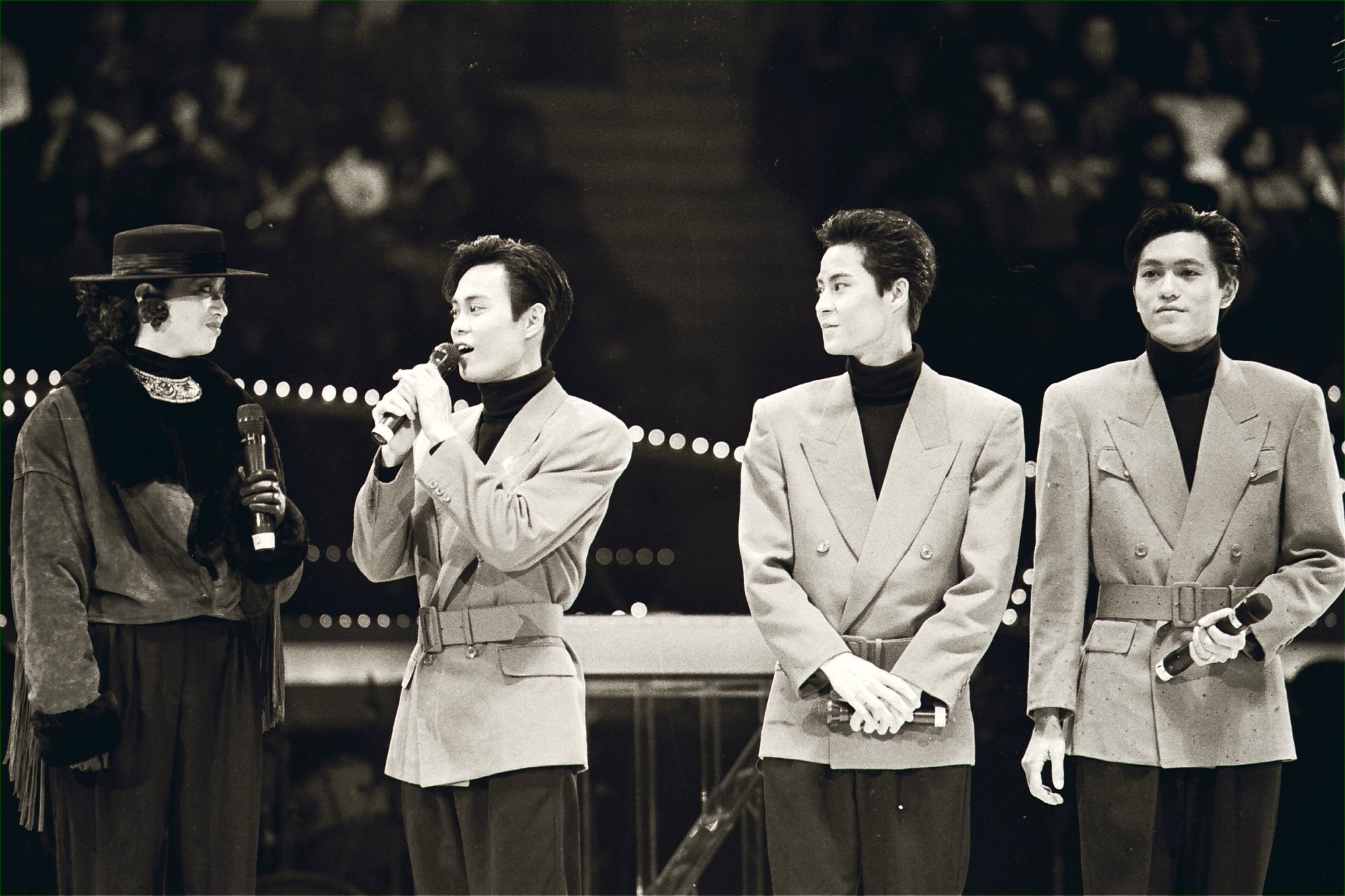
“If you listen to her Temptress album, you can hear the three of us. [We] did a lot of background vocals for her,” said Remus Choy.
Being one of the first boy bands to make it big in Hong Kong was not easy – record labels had not yet figured out how to make money from a group like they could with a single artist through endorsement deals and merchandising.
As such, the trio were short of money. For a time, Grasshopper’s profits were split between them, which meant each member was making one-third of the revenue a solo artist would.
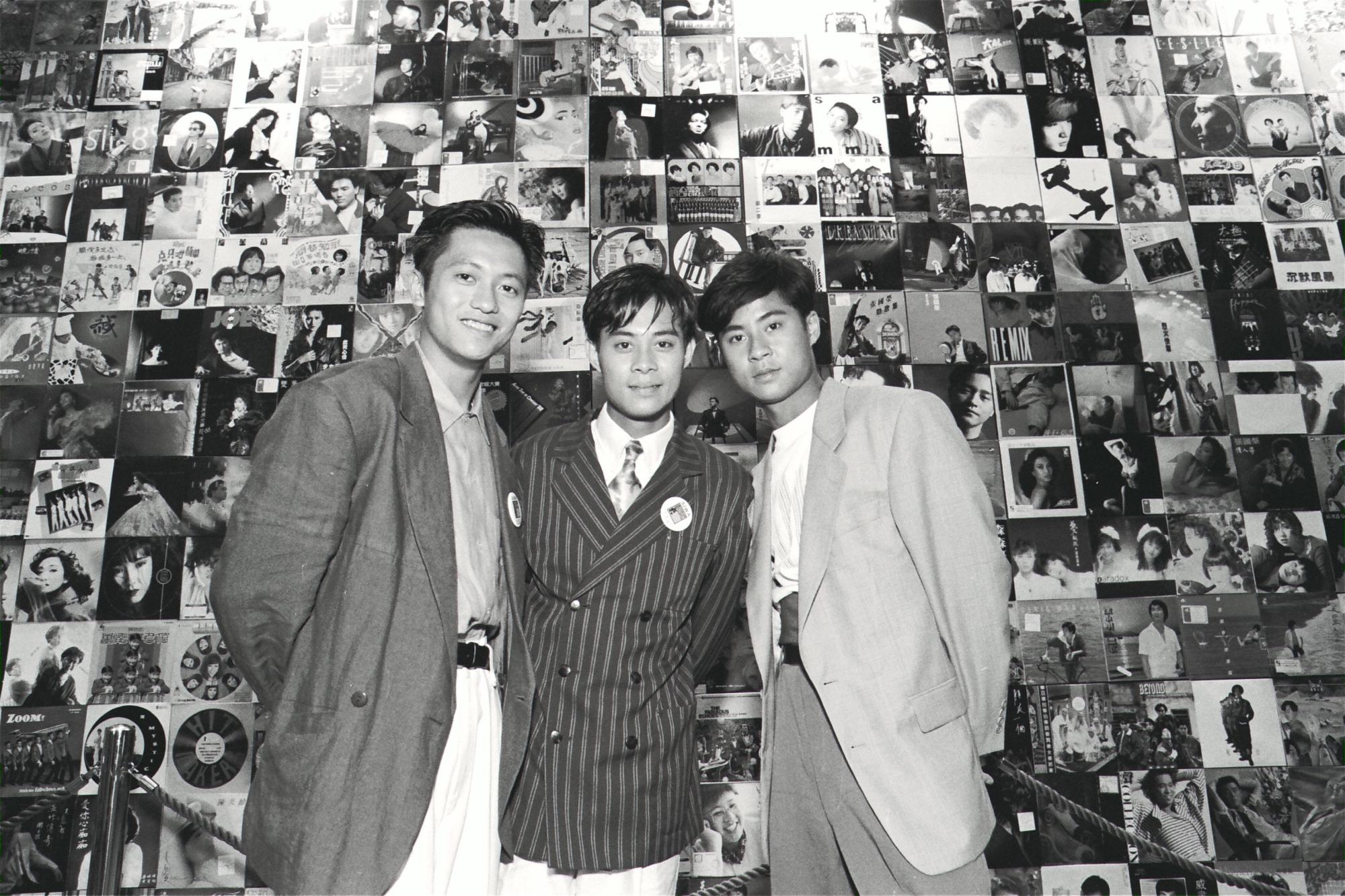
“We were still living in the housing estate and we would practise our dance moves at home,” recalled Calvin Choy. “I would hold a full-length mirror while Edmond and Remus practised, and I would tell them if they made any mistakes. We’d take turns doing that.
The boy band’s first album was a huge success and they were nominated for many accolades in 1988, including the Jade Solid Gold Best 10 Awards Newcomer award.
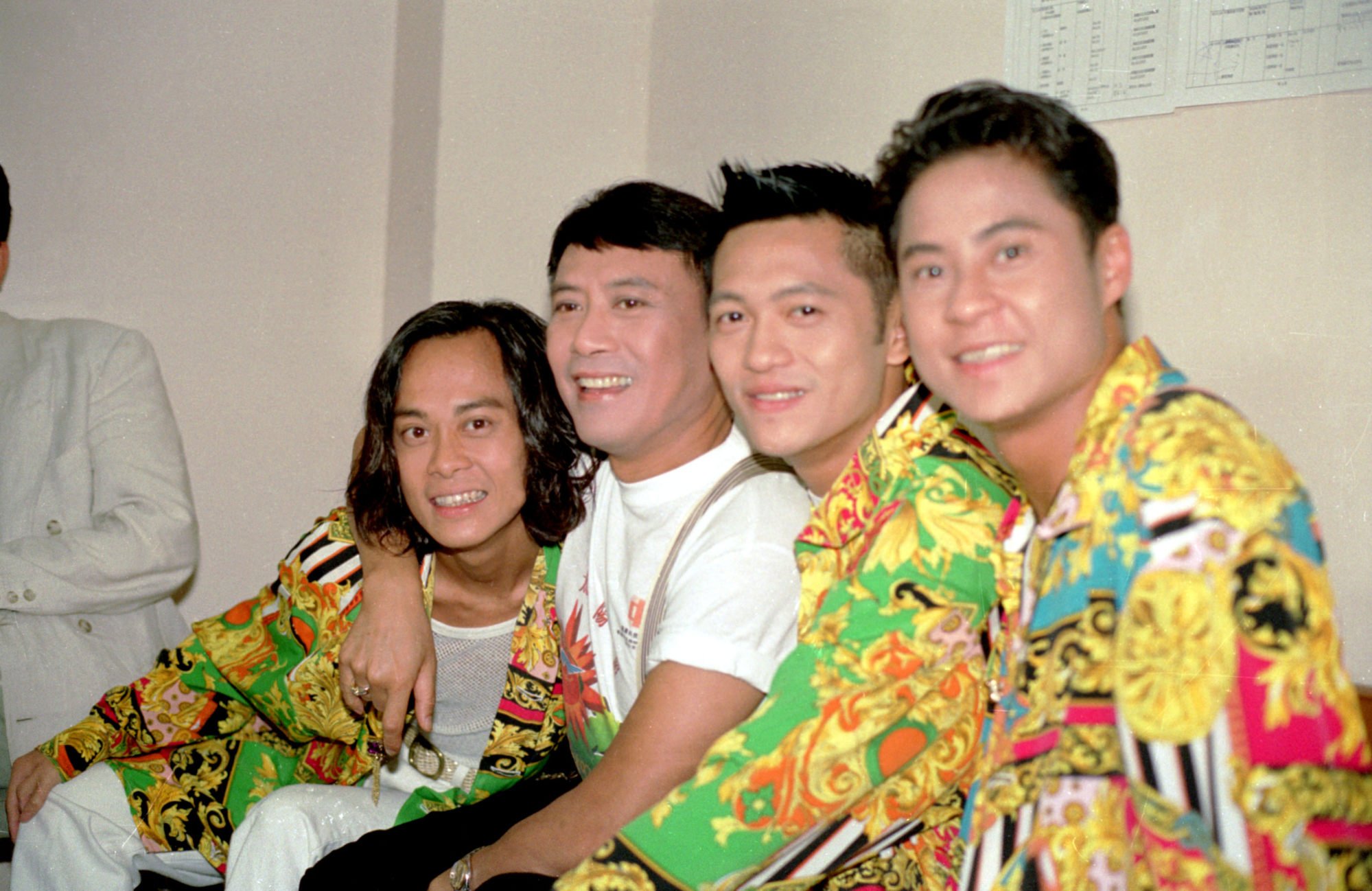
“We were telling [fellow Cantopop singer] Roman Tam that we didn’t have anything to wear to attend the ceremony and he invited us to his house, where he threw open his wardrobe and told us to choose anything we wanted,” Remus Choy recalled.
“We were in such awe of Roman’s wardrobe but we were too self-conscious to really make a choice, so we picked just any old suits. He reprimanded us for choosing something so plain and brought out three black and white suits for us. In retrospect, he bought those three suits just for us.”
Grasshopper truly became stars in the 1990s. Their songs were often in the top 10 of Hong Kong’s various music charts and, between 1991 and 1994 they had four No 1 hits across three different charts.
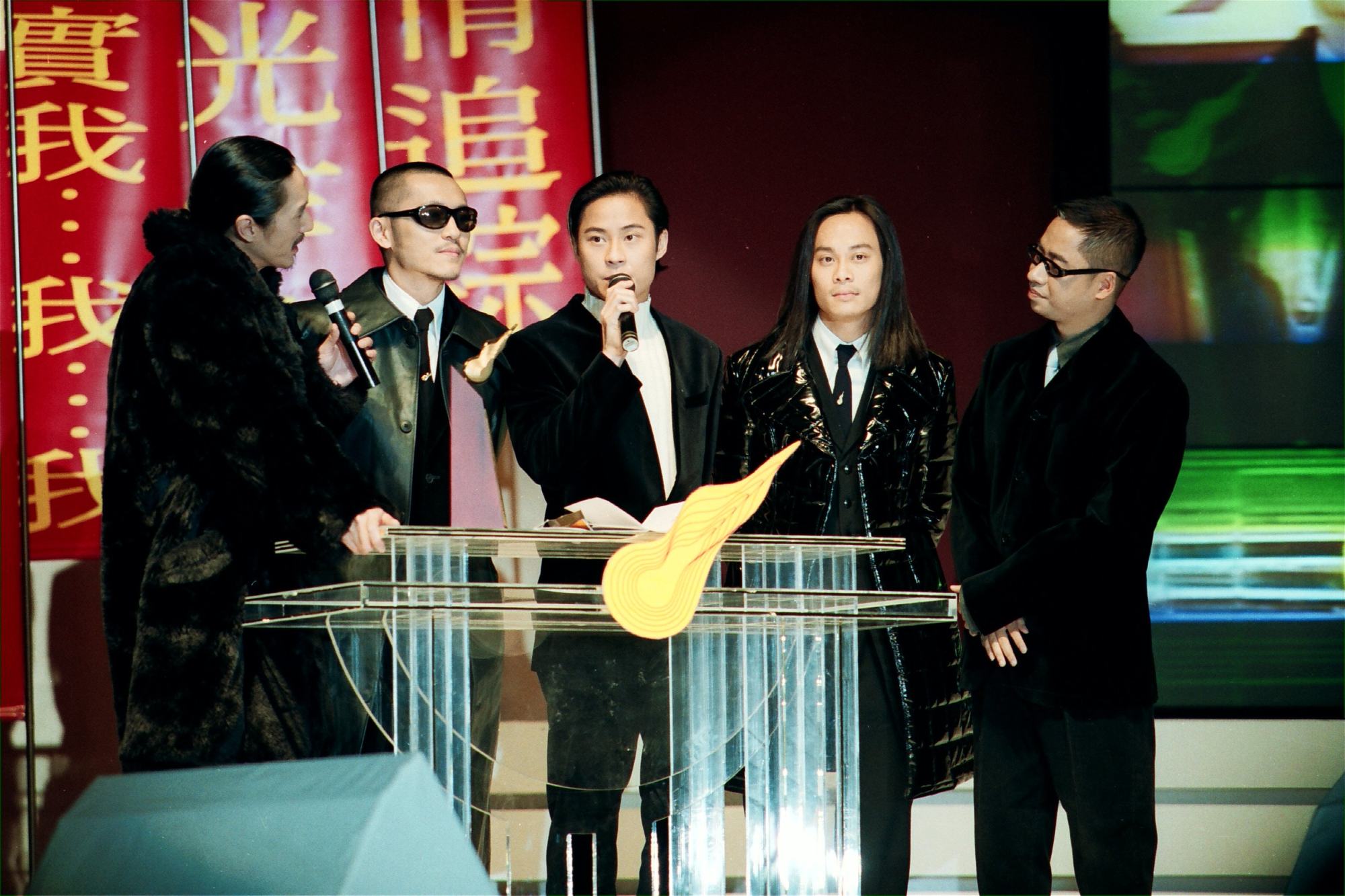
While many of their songs were covers with Cantonese lyrics, the Choy brothers also wrote their own songs.
Grasshopper’s continued success as a group for nearly four decades is down to more than just their music. Their stage presence, style and presentation balance taste and pizazz – something that they attribute to their time spent with Mui.
“It was Anita who told us to learn to do our own make-up and hair,” said So. “She said an artist should be able to go on stage even without help.”
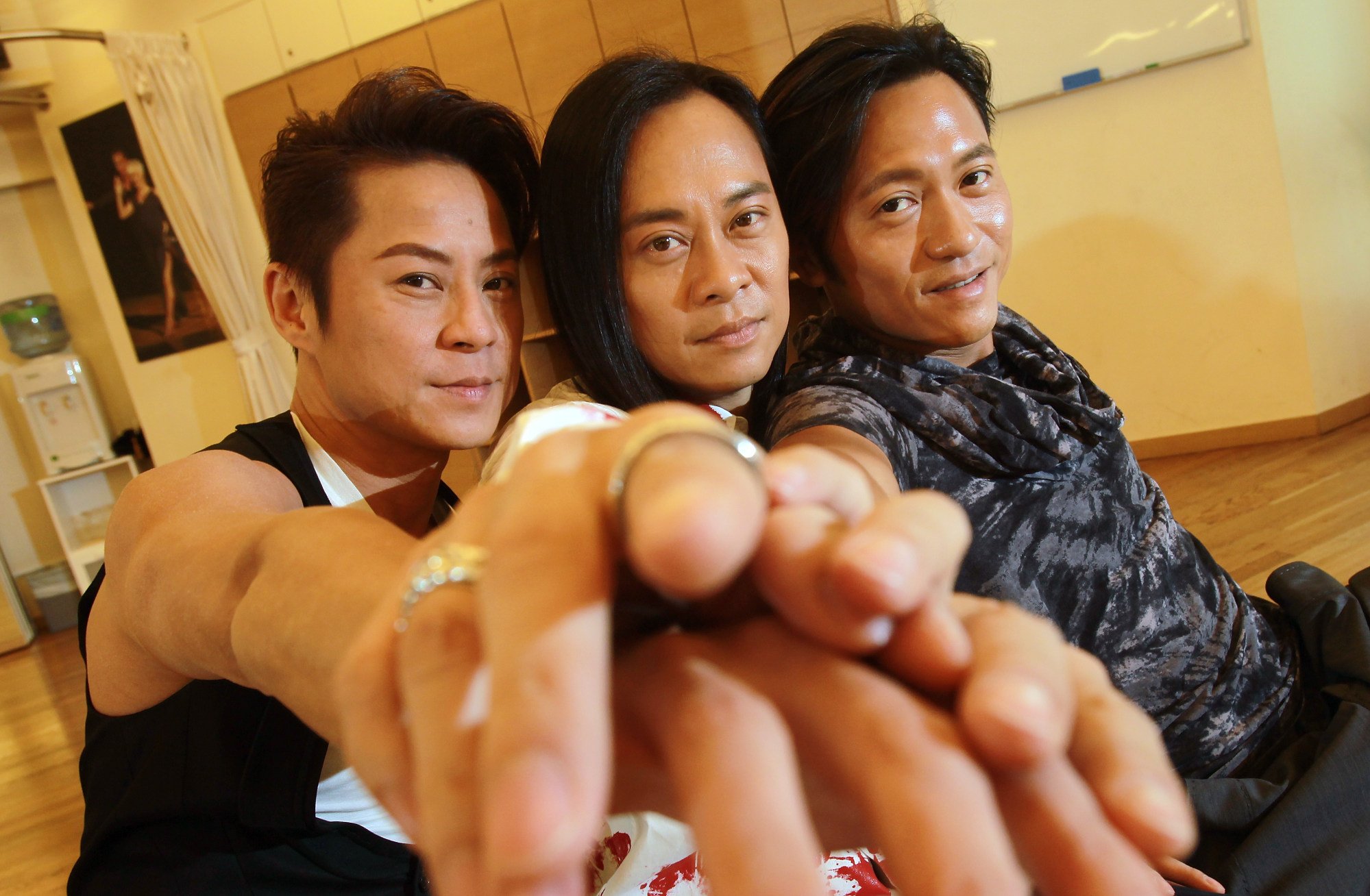
“Anita bought our suits for our first album cover,” the Choy brothers recalled. “She spent HK$20,000 on each of us, which was an astronomical amount in the ’80s.
The late ’90s and early 2000s were a quieter time for the group, as its members explored solo television and film projects.
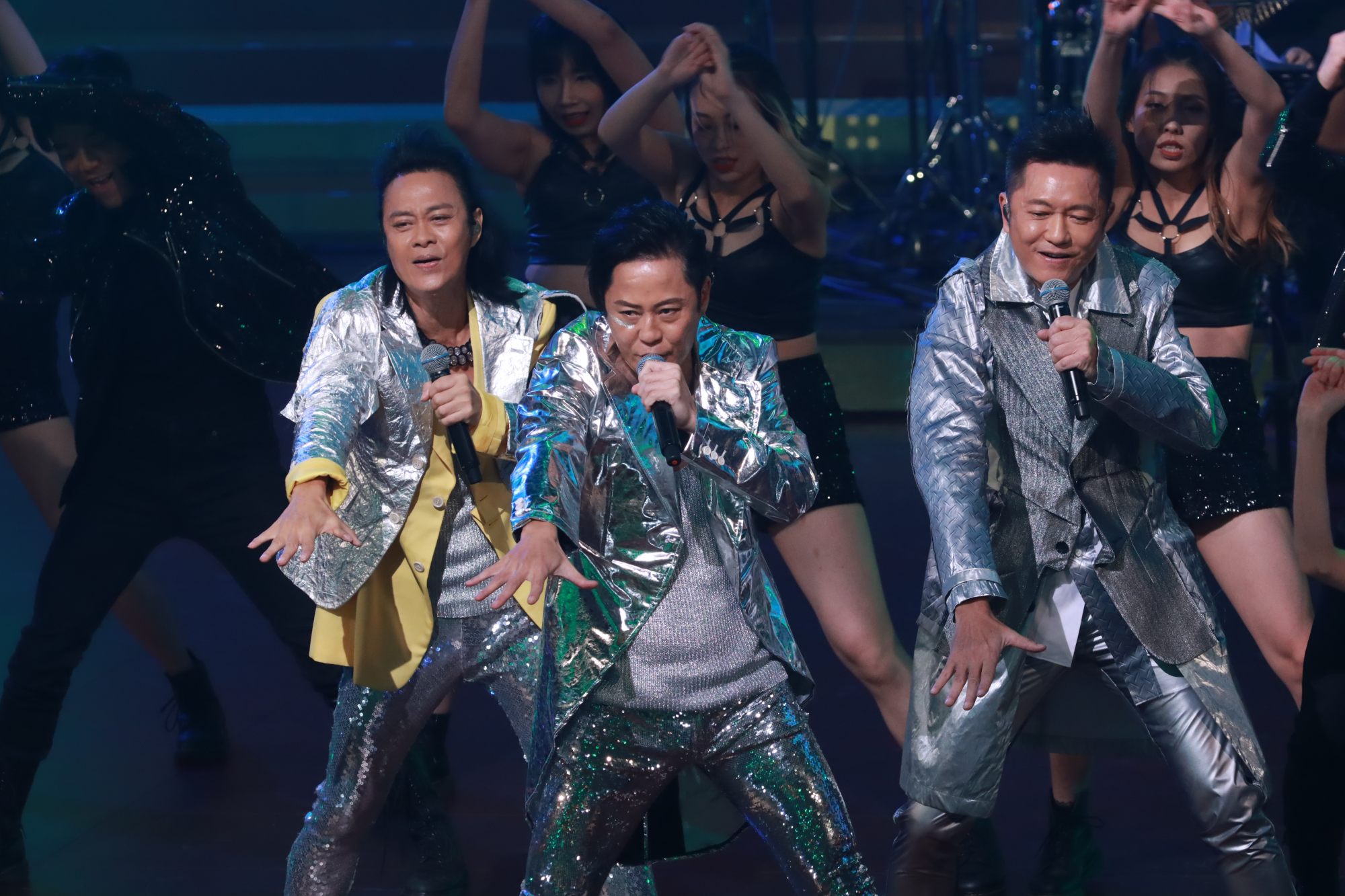
Interest in the band remained strong even in the mid-2000s, so they regrouped and began a series of world tours. The latest, Re: Grasshopper, began in Hong Kong in October 2022.
Reflecting on their recent concerts, So said: “We really enjoy dancing and entertaining people. We like bringing our songs and energy to audiences around the world.”












